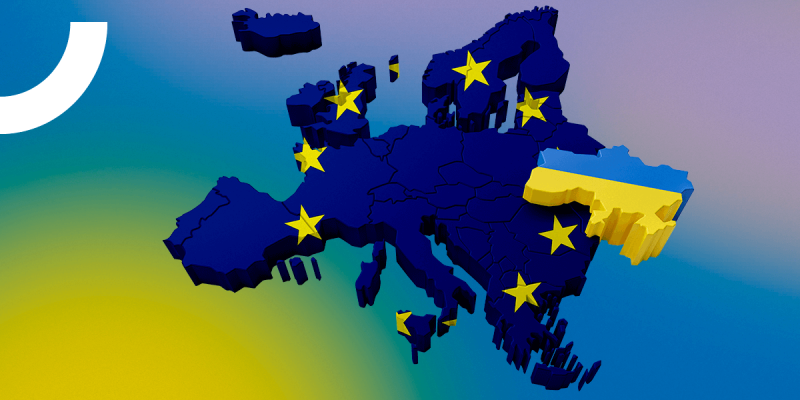
Onboarding and corporate spirit outside Ukraine: what we’ve learned from 2+ years of war
Ukraine is experiencing the second wave of mass blackouts. Many businesses have already been prepared for long-term power shortages – with stockpiles of generators and charging stations, satellite internet and autonomy support for their teams. Common problems of office-first companies united their members and allowed them to survive the challenges of war and even develop. However, for companies having offices in the EU or other countries, the situation is usually much more difficult: HR must not only organize effective communication, but also overcome conflicts between those who “stayed” and who “left”. My name is Vadym Pavliv, I am the HR Business Partner of fintech company bill_line, and today I will share with you a case study of how our company went through the difficult path of evacuation and relocation and was able to maintain its unity.
How the company carried out the relocation
We made the decision to relocate in the first hours of the full-scale invasion. Many of us didn’t believe that such a terrible crime could happen in a European country. But, when the first shock passed, we started to act.
bill_line had plans for an office in the EU in 2022. However, the initial 12 month plan had to be done in 1-2 months with an emergency pace. The only reason why we succeeded is the systematic approach.
First of all, our small HR team constantly monitored information about the number of colleagues who left and where they are, who are planning to leave, as well as about those from the team who decided to stay in Ukraine and where exactly.
From each of these lists, we’ve begun to work out the number of people who are definitely ready for relocation and the actual opening of the office. For this, the HRD of our company had a plan prepared in advance:
- Salary revision for resettlers taking into account the average cost of living in the EU
- Legal support for document preparation and especially the renting issues
- Organizational support: help in finding schools, kindergartens, etc
This care-approach gave results: upon arrival, colleagues in EU immediately started work – even on the adaptation weekends. Moreover, the entire team was waiting for the launch of the office, which we were able to organize only two months after our arrival. At that time, the colleagues were on remote, which was very limiting in real socialization: everyone found themselves in a new foreign country and wanted to have a familiar coordinate system in communication.
Relocating showed that money doesn’t always play a decisive role in strong team building . Everyone understood that their personal life and career were changing for a long time. But the importance of relocation for families was felt by everyone, and the constantly active group chat of the company showed everyone that the home is a people, not the location.
Although the team support work was no less difficult than the chaos of the relocation in the first days of the war.
Onboarding and corporate spirit outside Ukraine: what more than 2 years of war have taught us.
Overcoming the challenges of two-offices work
I will say right away – there is no revelation or magic recipe for success that can be used as a model. Why? Because each company, like a person, is unique. I read many successful cases on this topic and realized that from each of them you can (and should) take not the content itself, but the systematic approach behind its implementation.
I like to deal with problems according to mathematical principles. Task: war as a cause and its effects in the context of the company’s work: destruction, blackouts, concern for loved ones who are fighting, financial and mobilization insecurity. This makes us experience fear, stress and emotional upheavals due to daily events, from the global (safety of life and health of colleagues) to the banal (being late for the meeting because there is no light, mobile operators don’t give 4G, there was an air raid alert at night and we overslept).
As a result, one part of the team lives with these challenges every day, but the other one, the EU one, only feels everyday discomfort in another country, which can be overcomed by a new system of habits. We get the situation “the full will not understand the hungry”. This is an unanswered question that, if ignored, easily turns into the famous gun on the wall that can go off at any moment.
The main challenge of such work is not trying to answer the question, because everyone interprets any answer to their advantage, because they already know it in advance. It is necessary to make the situation irrelevant, as well as the answer to it.
That is why we emphasize the advantages of working in the Kyiv office and constantly increase them. Organizationally, we created a situation of the maximum comfort zone: starlinks and a powerful generator work in the office, equipped with a modern storage room with a large supply of drinking water and food, sleeping places and a gym. The ecosystem of quality leisure not only helps people feel safe – it is also a great tool for socialization, thanks to which we see concrete positive results from the one-on-one feedbacks with the team.
Our EU office is convenient and meets all the needs of modern digital-first business. However, it is significantly more modest (primarily because 20% of the team works there) and more ascetic in matters of additional comforts. These and other small things like broadcasting corporate parties to the EU office will allow us to emphasize the importance and value of those who remained in Ukraine.
Checklist for HR on synchronization with foreign offices
The basic task of any Ukrainian company in the situation of two or more foreign offices is to create a single information field, clear vertical and horizontal communication and feedback. I mean all the things that colleagues in different offices can say to each other face to face, over a cup of coffee, while it is important to correctly transfer this opinion “on paper” in mail, tg or task manager.
- Determine the only timezone of the company. We tied all internal events to Kyiv time to unite employees;
- Produce the company’s identity and merch only in Ukraine – it’s cheaper, even with shipping costs to the EU, and supports local Ukrainian business;
- Hold absolutely all corporate events at once in all offices, from a strategy session to a pizza party;
- Equalize the benefits for the team from different countries: if in the EU we help with settlement and adaptation, then in Ukraine it is support for housing autonomy and child care.
What unites our team
The checklist rules described above really help keep the team united and stop factionalism from forming. Our company has approved values – and if it is impossible to create the same conditions for everyone within the framework of values, then the values themselves can become a “coordinate system” for forming conditions and preserving social ties.
Involvement in joint tasks also unites. Ever since the COVID-19 period, the world has been “hooked” on the tools of remote work and socialization, which support (partially) these social ties that keep the team “afloat”. Thanks to this policy, we have passed these 2.5 years of scaling during the war with positive results. We formed a team that clearly understands its roles and has sufficient resources from its own experience and from the company to achieve goals, has common values for life, and works for the overall victory.
The best tools for HR management
In addition to Hurma, which is currently the best analytics soft for team management, we have created a small information ecosystem around our Confluence: a wiki-like section about the history of the company, a transparent list of rules governing the main processes of the “internal kitchen” of the company, a system for requests from the team as simple as possible and we plan to integrate more functions of Telegram chats.


